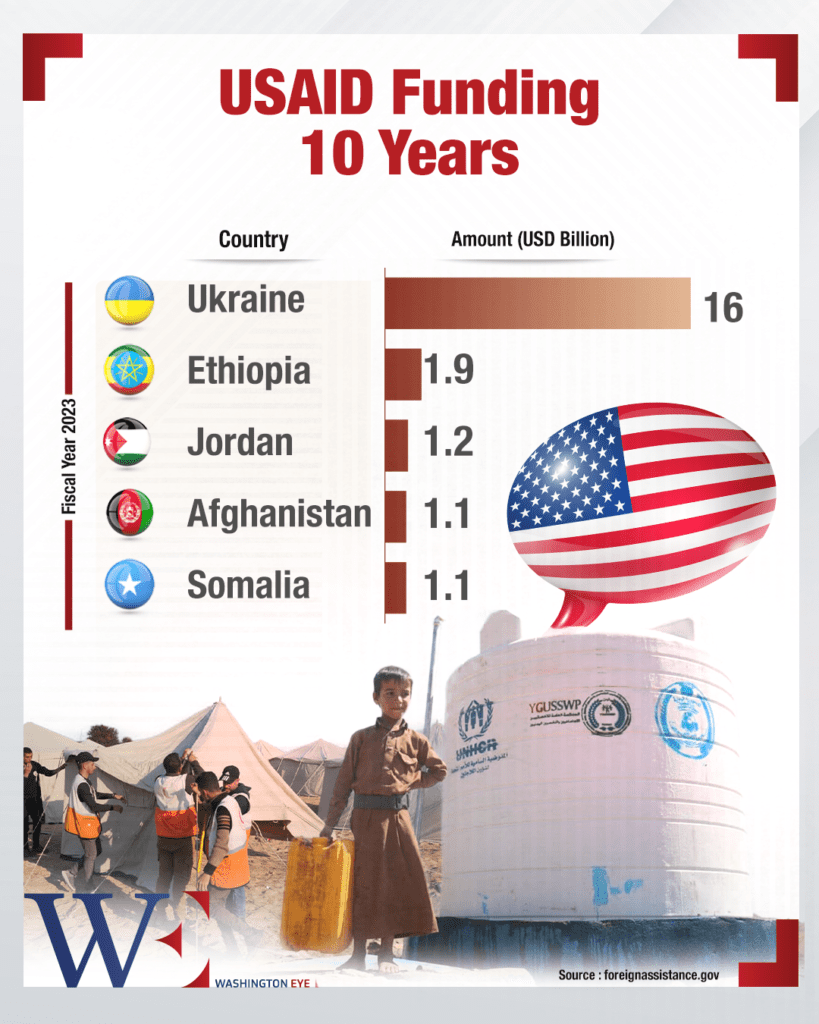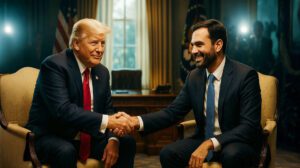In a significant policy shift, the Trump administration has enacted a comprehensive freeze on the majority of U.S. foreign aid programs, initiating a 90-day review to assess their alignment with national interests. This suspension encompasses a wide array of assistance initiatives, including those targeting health, education, and development sectors. Notably, exceptions have been made for emergency food aid and military assistance to Israel and Egypt.
The directive, issued by the State Department, mandates an immediate halt to all ongoing foreign aid activities and places a hold on new funding commitments. This action aligns with President Trump’s “America First” policy, aiming to ensure that U.S. foreign assistance programs effectively serve the nation’s strategic objectives.
What Does this Freeze Mean?
Humanitarian organizations have expressed deep concern over the potential consequences of this aid suspension. The Global Health Council warns that the freeze could disrupt critical health interventions, such as those providing clean water, shelter for displaced families, and essential medical treatments. They emphasize that these programs are not merely acts of charity but are strategic investments that enhance U.S. security and economic interests.
The Trump administration’s recent decision to freeze most U.S. foreign aid has also cast a spotlight on USAID (the United States Agency for International Development), the key agency responsible for administering these funds. USAID, which oversees a significant portion of U.S. foreign assistance aimed at fostering global development and stability, is directly impacted by the suspension order.
Concerns have also arisen over potential disciplinary actions against USAID staff who raise objections to the aid freeze or its implementation. Critics argue that such measures could stifle dissent and undermine the agency’s independence. In response, USAID employees and external humanitarian groups have voiced concerns about the implications of the aid freeze for both U.S. influence abroad and the lives of millions who rely on these programs.
This development has intensified scrutiny of how USAID will navigate its role in light of the administration’s “America First” policy, with many questioning the long-term impact on its ability to fulfill its mission of advancing global prosperity and security.
The suspension also poses significant risks to global health initiatives, including the President’s Emergency Plan for AIDS Relief (PEPFAR), which supports over 20 million people worldwide.
Food for Thought: A Shift in Global Aid Leadership?
The Trump administration’s decision to freeze nearly all U.S. foreign aid raises a crucial question: what could this mean for America’s role as the world’s largest aid donor? Historically, U.S. foreign assistance has served as a cornerstone of its soft power, reinforcing global alliances, supporting development, and fostering stability in regions of strategic importance.
If the freeze leads to a significant reduction in U.S. aid or disrupts long-standing programs, it could create an opportunity for other nations, such as China, the European Union, or maybe Turkey to step into the vacuum. China, in particular, has been expanding its influence through initiatives like the Belt and Road project, which often incorporates aid and investment in developing countries. With America pulling back, Beijing might deepen its foothold in regions like Africa, Southeast Asia, and Latin America, further challenging U.S. influence on the global stage. Turkey, through its Turkish Cooperation and Coordination Agency (TIKA), could seize this opportunity to expand its foreign aid efforts, further solidifying its growing influence in regions such as Africa, the Balkans, and Central Asia, where it has already been active in development and humanitarian projects.
Such a shift could also have broader implications for international diplomacy. Foreign aid is often a critical tool for securing alliances, advancing human rights, and promoting stability in fragile states. A diminished U.S. role in this space might erode its ability to shape global policies and initiatives. In addition, it could weaken its reputation as a champion of humanitarian efforts, which has historically garnered goodwill across nations.
Moreover, for nations heavily reliant on U.S. aid, this freeze might force them to turn to alternative donors who may not share the same values regarding transparency, democracy, and human rights. This could lead to a realignment of global partnerships, potentially altering the geopolitical landscape for decades to come.
As the review of U.S. aid programs unfolds, policymakers and citizens alike must grapple with the long-term ramifications of this decision. Will America relinquish its position as the largest aid donor, and if so, what does this mean for its global standing? Could this shift pave the way for a new era of leadership in international development, and if so, who will take the helm? These questions underline the far-reaching consequences of this policy pivot, both for the U.S. and the world at large.















